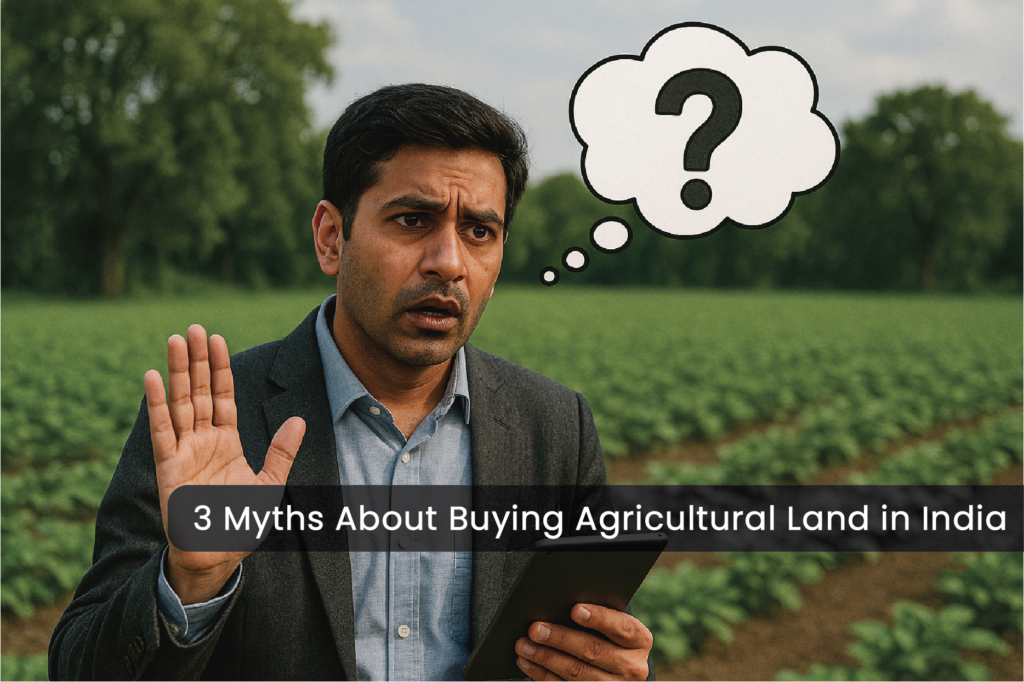Investing in land sounds simple until you mention it’s agricultural.
That’s when the myths roll in: “You can’t legally buy it,” “There’s no income,” “It’s risky and remote.”
Let’s cut through the confusion.
As urban professionals explore alternative assets, farmland is emerging as a surprising frontrunner. But a few common misconceptions are holding people back, especially first-time investors. Here’s the truth behind three big myths surrounding agricultural land in India.
Myth 1: “You can’t buy agricultural land unless you’re a farmer.”
This is almost entirely a myth, depending on where you live.
Some Indian states like Karnataka, Tamil Nadu, and Telangana have relaxed restrictions in recent years, allowing non-farmers to purchase agricultural land under certain conditions. For instance, in Karnataka, amendments to the Land Reforms Act in 2020 made it possible for more urban investors to legally buy agricultural plots, as long as they aren’t converting them to non-agricultural use.
Reality: With the right legal guidance and due diligence, buying agricultural land is completely legal and increasingly accessible.
Myth 2: “Agricultural land doesn’t give returns”
Sure, barren land sitting might not give as many returns as urban areas. But managed farmland is a whole different story.
When a team handles your land with a clear crop plan, sustainable practices, and long-term soil enrichment, your investment does more than grow trees. It can produce passive income through crop yields, appreciation, and offer tax benefits on agricultural income.
Mogg’s Estates, for example, follows a PDSM model (Procure, Development, Sales, Management), which means your land is not just bought and forgotten, but managed with consistent effort and expertise.
Reality: Farmland done right = smart income + long-term growth.
Myth 3: “It’s too far and too risky”
Most people imagine farmland as some remote patch, hours away, with no network, no roads, and zero control.
But that’s changing fast.
With projects like Mogg’s Terra Hill just 75 minutes from Bangalore, you’re closer to your land than you think. And with monitoring, regular updates, managed harvesting, and weekend accessibility, it’s more transparent and trackable than many urban real estate options.
Reality: Modern agri investments are designed to be connected, secure, and low-hassle.
So, is agricultural land worth it? If you do it smartly. The landscape has evolved from inheritance-based ownership to structured, investor-friendly models. Today’s managed farmland isn’t just a plot. It’s a sustainable asset, a lifestyle choice, and a step toward food security.
Still wondering if farmland is right for you?
Let’s break it down over a call or, better, a farm visit. Because farmlands may be far, but we aren’t.




